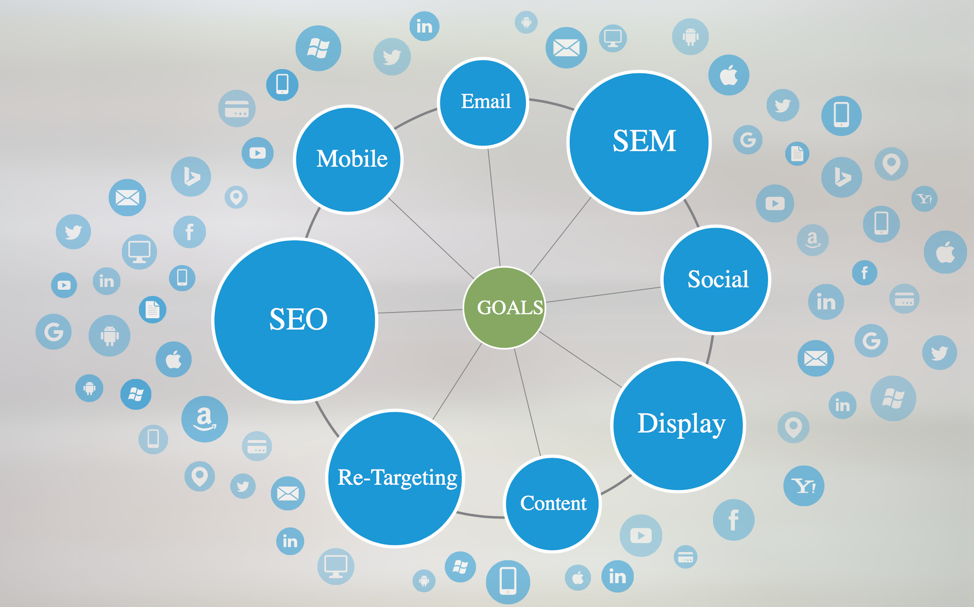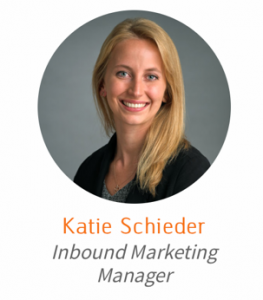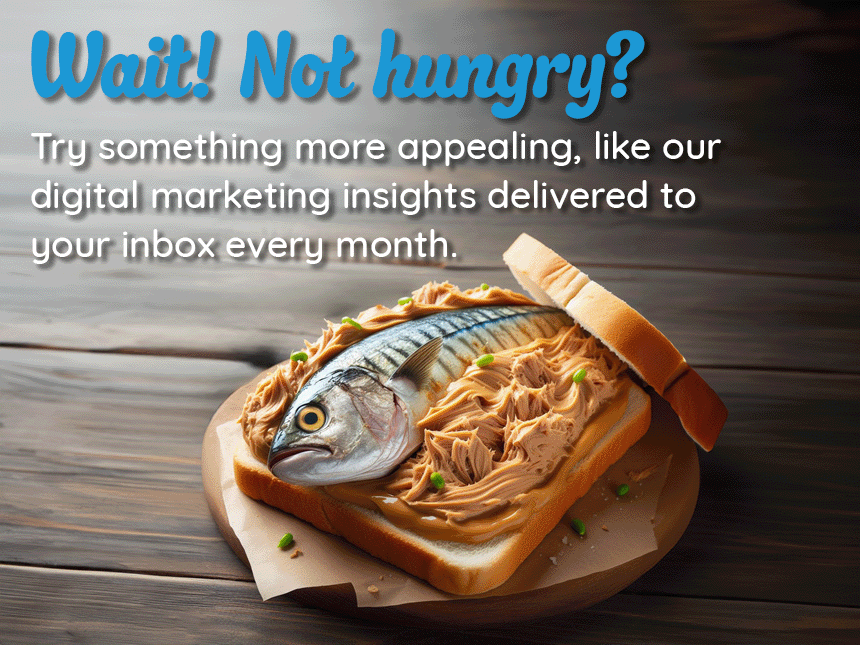Integrated Digital Marketing Part 1: Search Engine Optimization and Content Marketing

At Arc Intermedia, we approach digital marketing from an integrated perspective. That means leveraging multiple tactics together to maximize the effectiveness of each one.
This post is the first in a series that will dive into that idea in deeper detail. To kick us off, let’s discuss the integration of search engine optimization and content marketing.
We’ll start with a brief description of each of those two tactics.
What is search engine optimization?
Search engine optimization (SEO) is the science of building a webpage or series of webpages with the intention of ranking highly within search results for specifically target keywords.
In essence what this means is building a webpage, crafting its content, and attempting to shape outside influences like links from other websites so that, when a prospective customer searches an applicable term in Google or other search engines, your page appears within those search results above any of your competitors. Thereby making the searcher more likely to visit your page.
What is content marketing?
For the purpose of this article, we’ll define content marketing as writing original content that people outside your organization would want to share on their own websites, social media channels, and platforms.
Content marketing is most effective when it’s not an advertisement for your offering. Instead, the content produced should be helpful, educational information on your topic of expertise, that just so happens to be provided by you. The idea, then, is that when readers who may be unfamiliar with you find the information useful and subsequently need the type of product or service you offer, they’ll view you as the subject matter expert and be more likely to purchase from you.

Think brand exposure and identity building. But the other great benefit to successful content marketing is that, if the content lives on your site or links back to your site, it can lead to a direct increase in traffic, and potentially a boost in search engine optimization.
And that’s where the integration of the two tactics takes effect.
Integrated digital marketing – SEO and content marketing
As an all-inclusive digital agency, our SEO team understands content marketing, and our content marketing team knows SEO. But both individual tactics are still more successful when they work together. Here are some examples.
Content marketing with SEO knowledge
 Katie Schieder and her content team utilize tools, research, experience, and common sense to uncover topic ideas that are popular among the intended audience and are frequently shared on social media. They even go so far as to investigate the days and times that certain topics are the most shared.
Katie Schieder and her content team utilize tools, research, experience, and common sense to uncover topic ideas that are popular among the intended audience and are frequently shared on social media. They even go so far as to investigate the days and times that certain topics are the most shared.
But that encapsulates the topics we know users are interested enough in to share with others.That encapsulates the topics we know users are interested enough in to share with others.
It’s when our SEO team gets involved that we begin to see the full story of what content matters to what audience.  Ron Sansone and his search experts are seasoned pros at analyzing trends in search behavior, to uncover what types of topics and terms users search in Google, based on location, need, seasonality, and many other factors.
Ron Sansone and his search experts are seasoned pros at analyzing trends in search behavior, to uncover what types of topics and terms users search in Google, based on location, need, seasonality, and many other factors.
This makes us significantly more powerful in determining topics to write that will resonate with our intended audience, including those who are searching for the term and will find the article in the search engines.
Influencer marketing with SEO visibility
One form of content marketing is influencer marketing, which finds other people within the industry willing to post and share content on your behalf. When we research influencers to publish our clients’ content, we of course look for those with a wide readership in the space. But not all great influencers are great SEOs.
And that’s where we come in.
As referenced above, we’ve already chosen a topic based on known search interest. Once we start developing the content, we do so with targeted keywords and SEO best practices in mind, so the article is more likely to rank higher and be seen by a wider audience, outside even the reach of the influencer. We’re actually getting more traffic to the influencer’s site, because it means more prospects reading our article, learning about our clients’ offerings, potentially clicking to our clients’ sites. It’s a benefit for everyone involved.
SEO lifted by content marketing
This may be an obvious statement, but your website can’t rank on search engines for certain terms if you don’t have content about those terms. So if your site only consists of content about your company and its specific offerings, you will likely only ever rank for branded terms related directly to your company.
This is why good content marketing can improve the search engine optimization of a website. With our content and SEO teams’ powers combined, we recommend new topic ideas for blog articles and site pages to live within the navigation that, if done correctly, will attract new visitors through search terms a site could never previously rank for, and provide compelling assets those visitors will feel motivated to share with others.
SEO lifted by influencer marketing
One of the single most effective ways to increase the search engine optimization of a website is to get more quality links to it. Yes, there are white black hat and spam tactics that will get a website penalized, and those must be avoided at all costs(!), but Google and all other search engines still put great weight into whether a website of esteem links to your website in determining the ranking of your site.
As long as an influencer marketing initiative is not directly paid, meaning you aren’t paying the influencer to publish your content, that link and any additional links it generates from shares or pick-ups from other sites should pass SEO value to your own site. Do enough of them correctly, successfully, and in compliance with search engines, and you should see an uptick in rankings. You’ll also see a direct increase in referral traffic. But it takes an informed white hat SEO to understand the proper way to do this in order to be Google compliant and to undertake the initiative for the purpose of providing useful information to searchers, instead of trying to game the search engine system and unnaturally inflate backlinks.
Please note that if you are unable to secure unpaid publication on third-party influencer sites, paid efforts are still an extremely effective way to build brand awareness and referral traffic to your site. However, to be compliant with Google and other search engines, you should place a rel=”nofollow” tag on any paid links, which will mean the link does not pass any direct SEO value to your site.
These are just some of the ways that content marketing teams working alongside SEO teams improve both tactics for a website. And this is just one example of the power of integrated digital marketing. Future editions of this series will get into other symbiotic tactics. Stay tuned for more.



